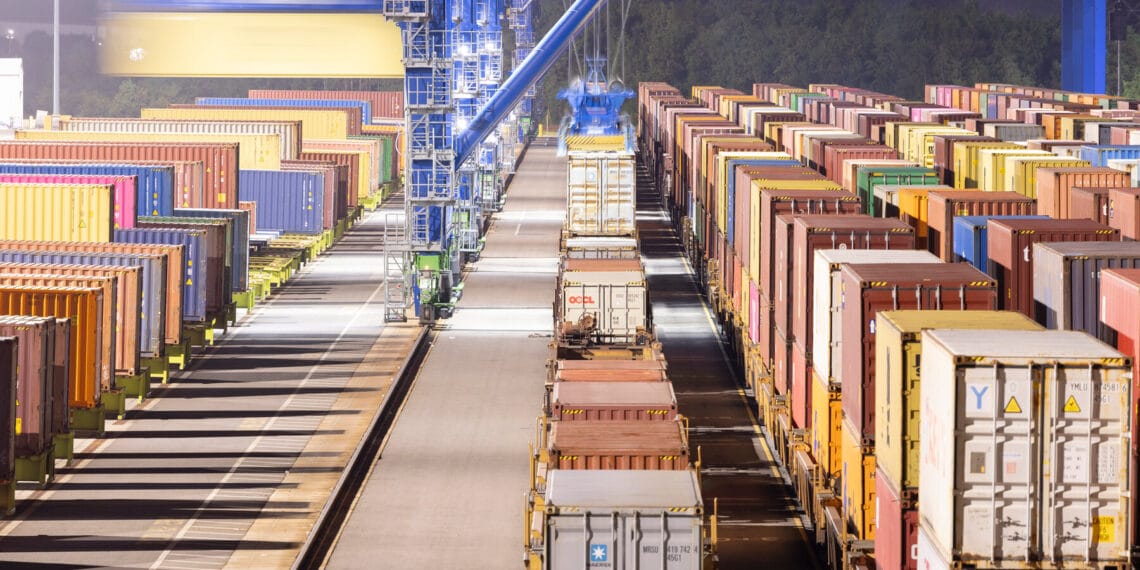The Gist
Tens of thousands of longshoremen along the East and Gulf Coasts staged a walkout, bringing significant disruption to port operations. This strike highlighted ongoing concerns regarding wages and working conditions. After multiple days of negotiations, a tentative agreement has been reached between the longshoremen’s union and their employers concerning wage increases and other work-related issues. This agreement is critical as it aims to resolve the tensions that caused the strike and prevent further disruptions in the supply chain.
The resolution of this strike may have positive implications for workers and businesses alike. It illustrates the power of collective bargaining and the importance of unions in advocating for fair wages. While this agreement is still tentative and will require formal ratification by union members, it represents a step towards alleviating the frustrations expressed by many workers in this sector. The outcome could impact similar negotiations in the future, as it highlights the need for fair compensation in a changing economic landscape.
The Good
- Improved Wages: The agreement potentially means better pay for longshoremen, helping improve their standard of living.
- Increased Job Satisfaction: With better working conditions and wages, workers may feel more valued and satisfied in their jobs.
- Positive Economic Impact: A stable workforce can lead to smoother operations in ports, aiding businesses and the economy overall.
- Strong Union Influence: This event demonstrates the power of unions, encouraging other workers to advocate for their rights and benefits.
- Encouraging Negotiations: The successful agreement may pave the way for future negotiations to focus on worker welfare and fair practices.
The Bad
- Possible Instability: Even though an agreement has been reached, the tentative nature can lead to uncertainty in the long term.
- Potential for Further Strikes: If the agreement is not ratified or if workers feel it does not meet their needs, future strikes could occur, disrupting operations again.
- Employer Resistance: This agreement may face pushback from some employers, possibly leading to additional conflicts down the line.
- Impact on Consumers: Delays caused by the strike and negotiations might have resulted in higher costs for consumers as businesses pass on the expenses.
- Economic Ripple Effects: A prolonged strike or continued labour disputes can lead to job losses and an unstable economy, affecting many beyond the immediate workers.
The Take
In a significant development, tens of thousands of longshoremen along the East and Gulf Coasts initiated a walkout that brought port operations to a standstill. This collective action was motivated by ongoing grievances regarding pay and working conditions, emphasising the critical need for fair treatment of workers in essential industries. The strike drew attention not only to the valuable work that longshoremen perform but also to the struggles they face in securing just compensation in today’s economic climate.
After days of negotiations and intense discussions, the longshoremen’s union and their employers have reached a tentative agreement concerning wages. This agreement, while still pending full approval from union members, is seen as a breakthrough following protracted tensions that had escalated into labour action. The negotiations involved discussions not only about wages but also about better working conditions, which are crucial for the well-being of the longshoremen and the efficiency of port operations. With ports being a vital link in the supply chain, an agreement that keeps them operational is welcomed news by businesses and consumers alike.
The potential for improved wages signifies progress toward ensuring workers are fairly compensated for their labour. A successful resolution may lead to enhanced job satisfaction among longshoremen, as they can feel that their efforts are valued. Additionally, this outcome could serve as an important precedent for other unions and workers fighting for better wages and conditions in various sectors. The strength of the union and its ability to negotiate effectively highlights the essential role they play in advocating for workers’ rights.
However, the situation is not without its challenges. The agreement is still tentative, and there is uncertainty about whether it will be ratified by the union members. Should the agreement fall through or not meet the expectations of the workers, there is a risk of further strikes, which could lead to additional disruptions in operations at crucial ports. Employers may not readily accept the terms of the agreement, leading to resistance and potential conflict in the future. This uncertainty can create economic instability, impacting not only the longshoremen but also businesses that rely on the ports and consumers who may see increased prices as a result of supply chain disruptions.
In conclusion, while the tentative agreement between the longshoremen’s union and employers marks a positive step toward improving wages and working conditions, it is essential to recognise the layers of complexity surrounding this issue. The potential benefits are significant, offering improved pay and job satisfaction for workers, but the possible repercussions of labour disputes cannot be ignored. The situation exemplifies the ongoing struggles many workers face in securing fair treatment and the vital role unions play in championing their rights. It will be important to follow the developments of this agreement and its implications for the future of labour relations in the industry.

